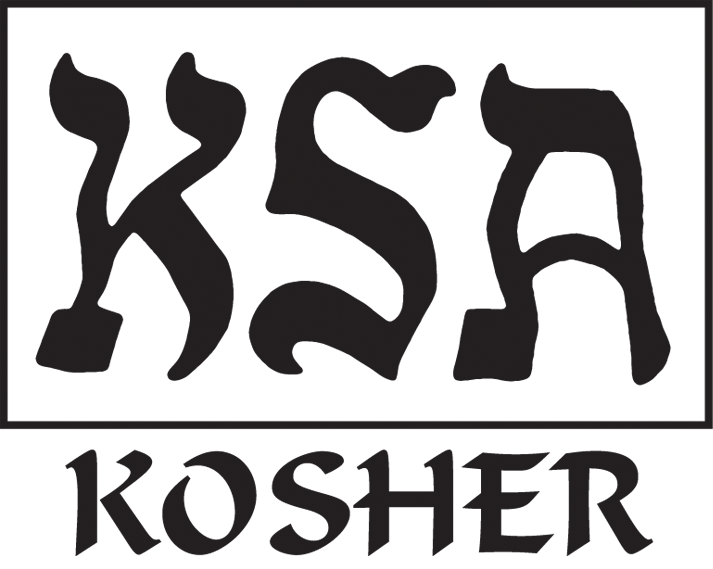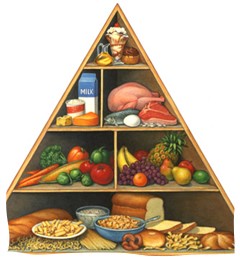
Food and Energy
Let us look at the question, “why do you need to eat food?” from a deeper perspective. Most people (unfortunately) go about their daily routine of providing for their bodies what nature requires – eating, drinking, sleeping, etc. – without paying much attention to what these activities and functions mean on a spiritual plane. The questions that we need to ask are: Why did G‑d create me this way? Why do I have to eat in order to obtain energy?
The Torah teaches us that, “Man does not live on bread alone, but rather man lives on the word of the mouth of G‑d.”1 In the Torah, the word “bread” refers to food in general, not just to bread. What the above verse is teaching us is that within the “bread” we eat is invested Divine life-force, and, moreover, that it is important for us to know that this life-force is coming directly from G‑d, the Creator and Sustainer of all life (and, indeed, of all reality). If we eat our food with this realization in mind, we can extract the Divine life-force or Divine spark that is the inner essence of the food. As a result, the level of nutrition—both physical as well as cognitive and spiritual nutrition—that we gain from the food will be much greater than if we eat without this realization in mind.
Every table on which we eat symbolizes the altar in the Temple. Knowing that our table is symbolic of the altar and that the food we consume releases energy in a way similar to a sacrifice, adds a new dimension to our meals. Whenever we eat, we should have in mind that we are raising the energy of the food in offering to G‑d, i.e., that we intend to use the energy that we gain from the food to serve G‑d.
Only kosher food releases its energy in a manner conducive to serving G‑d, raising our consciousness level (if we so intend when eating) such that we can recognize G‑d’s Presence in our lives and devote our lives to His service.
In Hebrew, the language of creation, the word for “life,” or “life-force,” Chaim, is related to the word for “heat,” chom. The Baal Shem Tov used to place his hand on the heart of a child and bless him: “Have a warm heart.”
Nutrients
The Torah classifies the basic needs of every human being into the following five categories:
- Air
- Water
- Food
- Clothing
- Shelter
These five categories correspond to various aspects of the Torah’s mystical model of our psyche.
Let us see how.
When healthy, we are generally not conscious of our breathing air. Thus, air corresponds to our super-conscious faculty called the faculty, of crown. Water is likened to our faculty of wisdom, which is responsible for providing us with new insights. Like water, which flows downhill from a high place to a low place, the insights of our wisdom flow down from their source in our super-conscious crown. Whereas air and water represent relatively unconscious or autonomous processes in the psyche, food represents ingestion and integration of external nutrients into our internal being. In the psyche, the integration of spiritual food, meaning the teachings of the Torah, is achieved by the faculty of understanding. Clothing represents the emotive attributes of the psyche. Finally, shelter, that is, our home, represents our social nature. As human beings, we are family and community oriented. This requires us to bring out our potential for leadership which is associated with our faculty of kingdom.
The integration of spiritual food is achieved by the faculty of understanding. We can now recognize that among the six nutrients required by the body, water is a separate category (it corresponds to wisdom) from the other five (which correspond to understanding). Still, all six are necessary for the body’s healthy functioning. In Kabbalah, we are taught that wisdom and understanding constitute an inseparable pair, which is why water and the other five nutrients are listed together. Wisdom is also known as the father principle (water) and understanding as the mother principle (the other five nutrients) of the psyche. While the father principle is essentially singular, the mother principle is described as complex and composed of five components.
In Kabbalah, the five components of the mother principle, or understanding, subdivide into three and two. The five nutrients subdivide in a similar way: carbohydrates, proteins, and fats form one subdivision; vitamins and the minerals form the second.
Carbohydrates
Carbohydrates, commonly known as sugars (sweets), correspond to the source of the emotive energy of love inherent in understanding. There are two types of love: intellectual love (attraction that is aroused by the intellectual contemplation of an object worthy to love) and natural love (innate love that arouses naturally, spontaneously and without contemplation). These two love-types correspond to the simple carbohydrates and the complex carbohydrates. Intellectual love corresponds to complex carbohydrates. Natural love corresponds to simple carbohydrates.
Fats
Fats correspond to the source of the emotive energy of compassion inherent in understanding. In Kabbalah, compassion is referred to as “the [torso of the] body,” which is either fat or slim. In Hebrew, the word for “fat” is cognate to the word for “oil.” Interestingly, because of this, a “fat body” is usually an idiom implying a healthy, or “well oiled” body. Thus, caring for one’s health is akin to having compassion for one’s body. Still, it is important to note that too much concern for one’s physical health, i.e., too much compassion for the body translates into too much fat! If an individual is not conscious of his or her real purpose in life, over-attention to the body may lead to an obsessive concern for health and result in the very opposite of good health!
Caring for one’s health is akin to having compassion for one’s body. Saturated fats are usually solid at room temperature while unsaturated fats are usually liquid. In Kabbalah, saturation relates to the presence of the faculty of knowledge within compassion. Such saturation translates in practice into a keen sense of knowing toward whom one should express compassion and how to express that compassion. The more saturated (meaning, the more knowledge is present in one’s compassion), the more solidified one’s feeling and implementation of compassion.
Proteins
Proteins correspond to the source of the emotive energy of fear inherent in understanding. Somewhat surprisingly, psychologically and spiritually, fear is manifest in the psyche as might. The explanation for this is that a person’s might represents the strength necessary to face his fears and to overcome the object or objects of fear. On the physical plane, in the body, might is manifest as muscular strength, which comes from proteins.
Proteins have regulatory functions. For example, the hormone insulin is a protein that regulates the level of sugar in the blood. In Kabbalah, we are taught that fear also has a regulatory function. Fear regulates love (just as with regard to too much compassion, too much love, or unregulated love, may have negative results). As noted, proteins are polymers of amino acids. In general, the spiritual psychological equivalents of acids derive from the emotive energy of fear/might in the human psyche.
Vitamins
Vitamins correspond to the source of the emotive energy of confidence inherent in understanding. Vitamins are organic molecules, in contrast to minerals, which are inorganic nutrients, as we shall explain. Minerals correspond to the source of the emotive energy of sincerity. In Kabbalah, confidence and sincerity are described as two sides of one coin. Indeed, like confidence and sincerity, their psychological counterparts, vitamins and minerals work together as two sides of one coin.
Vitamins and minerals work together as two sides of one coin. In this composite chart, we clearly see that vitamins (the sefirah of victory) are situated at the bottom end of the right axis, which begins with water. Following the normative order of the sefirot, vitamins (victory) follow fats (beauty). So, vitamins relate to both water and to fats. This is the Kabbalistic source for why there are two types of vitamins, fat-soluble and water-soluble.
But, now let us see how the Kabbalistic analysis interprets these two types of vitamins. Psychologically, the fat-soluble vitamins represent confidence as it is based on the experience of compassion. In other words, one type of self-confidence is the product of my experience of G‑d as always near me because of His mercy towards me. In this respect, self-confidence is warranted as G‑d is always eager to give us the power to succeed in achieving our life goals.
In contrast, water-soluble vitamins represent total reliance and confidence in G‑d, our Father in Heaven (remember that water corresponds to wisdom, which is also known as the father principle). Water nurtures confidence, but not a feeling of self-confidence. Indeed, here too, the physical plane mirrors the spiritual/psychological plane, because excessive amounts of the fat-soluble vitamins, just like overt self-confidence, can be toxic.
Minerals
Minerals correspond to the source of the emotive energy of sincerity inherent in understanding. Sincerity implies simplicity, in our context alluding to simple, inorganic chemical elements necessary for our bodies to function properly. As mentioned above, confidence and sincerity function together as two partners. In Kabbalah, they are depicted as two legs, neither of which, when walking, can function without the other.
One of the most important examples of a mineral necessary for the body to function is iron, needed to make hemoglobin, the oxygen-carrying protein in red blood cells. The blood flow, which carries oxygen, the “breath of life,” to all of the body’s cells is symbolized in Kabbalah by physiological walking or traveling. It is controlled by the psychological power of sincerity.
Nutrition and a Balanced Diet
Let us now see how the basic rules for a healthy physical diet translate into guides for a healthy spiritual life. As we saw above, foods rich in complex carbohydrates represent intellectually inspired love (for both G‑d and mankind).
Just as complex carbohydrates serve as the base of our physical diet, intellectually inspired love, derived from in-depth study of the Torah and meditative prayer form the basis of a healthy spiritual and religious life.
A healthy body requires a healthy soul—the two are interdependent. One should limit one’s intake of fatty, sugary foods. Likewise, as explained above, too much unregulated love (sugary foods) or compassion (fats) for one’s self may be negative for one’s overall well-being. Of course, the energy released from the food that we eat will help us ascend in our service of G‑d and mature in character only if the food is kosher according to the laws of the Torah.
A healthy body requires a healthy soul—the two are totally interdependent. In Hebrew, the initials of “body” (guf) and “soul” (neshamah) spell the word for “garden” (gan). A kosher, well balanced diet, together with proper, Divinely oriented consciousness, brings us back to the unadulterated state of the Garden of Eden, where G‑d placed us before the primordial sin of eating that which G‑d had forbidden. Just as mankind was exiled from the Edenic state because of choosing to eat unwisely, so our return to the Edenic state depends on our most basic drive: our need to eat.

